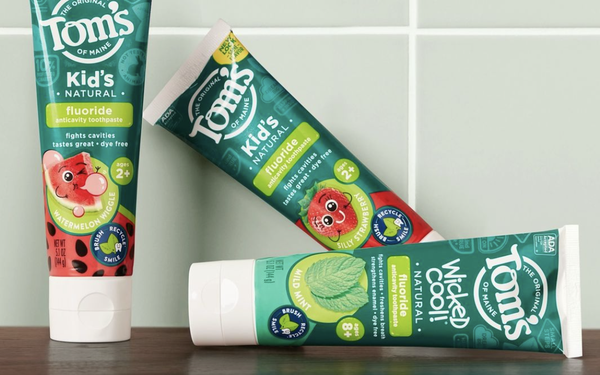
Add Tom’s
of Maine toothpaste to the list of potentially dangerous products. While stopping short of a recall, the Food & Drug Administration found violations “too numerous to count” at a
Tom’s manufacturing facility in Maine. Those include failed written procedures, multiple types of bacteria, inadequate water systems and improperly maintained buildings.
In addition to
finding a black mold-like substance in the facility, the FDA identified several microorganisms in water samples and finished products.
Specifically, the FDA’s letter names Tom’s
Simply White Clean Mint Paste, Wicked Cool! Anticavity Toothpaste and Tom’s Silly Strawberry Anticavity as potentially contaminated.
The FDA inspected the facility in May, and in June,
Tom’s responded to the FDA’s findings.
advertisement
advertisement
The current warning letter from the FDA is dated Nov. 5 and calls the company's response inadequate. It gives Tom’s 15 days to more
fully answer the charges and propose safety solutions, including the possibility of product recalls.
Among those inadequacies? The company told the FDA that because Tom’s receives so
many complaints about its products, the personal-products brand takes a “risk-based approach” in deciding which to investigate. The FDA charges that more than 400 complaints about odor,
color, and taste were not investigated.
“We’re working with the FDA and are remedying the issues raised in their May inspection of the Tom’s toothpaste manufacturing plant in
Sanford, Maine,” Tom’s says, in a statement emailed to Marketing Daily. “We have always tested finished goods before they leave our control, and we remain fully confident in
the safety and quality of the toothpaste we make.”
Tom’s, acquired by Colgate in 2006, is also working with water specialists to evaluate systems at Sanford. “Our water
testing shows no issues,” it says. “We are also making capital investments as part of an ongoing, significant upgrade of the Sanford plant’s water system. Tom’s is committed to
making safe and effective natural products for our consumers and to maintaining the trust in our brand.”
A Rutgers University professor of food and science tells the New York Times
that the bacteria found by the FDA could potentially cause illness, especially in those who are immunocompromised, and suggests throwing the products out.
Multiple brands have been
impacted by mold and bacteria in recent months. Contamination at a Boar’s Head plant has led to multiple deaths from listeria, and L’Eggo waffles also faced a listeria-related recall.
Wolverine Packing Co.’s ground beef has just been recalled due to possible E. coli contamination and a widespread recall of organic carrots, also linked to possible E. coli cases.